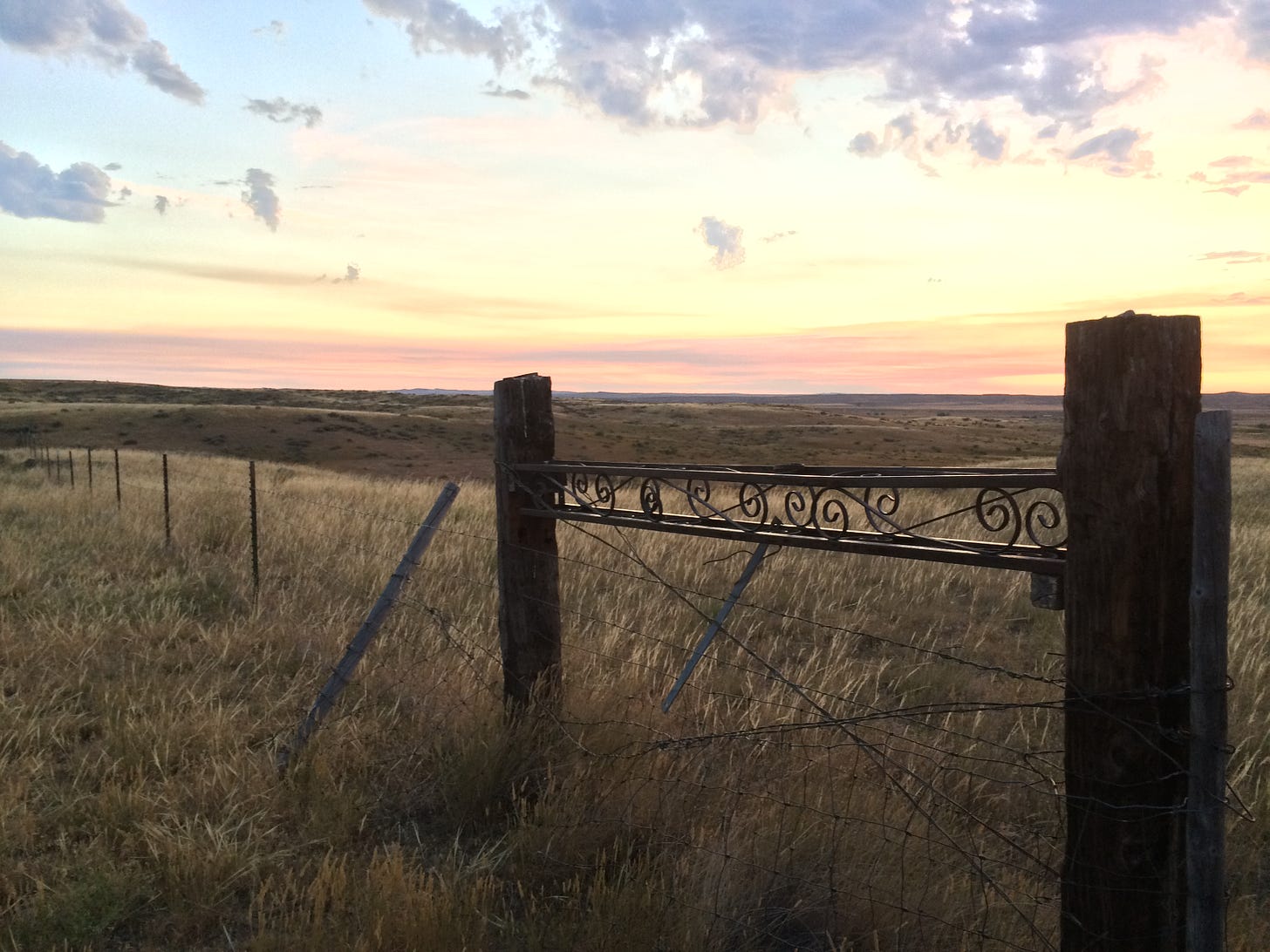When Little, Brown—bless them—bought my debut novel, Fall Back Down When I Die, they went ahead and scooped up the next one as well. The trouble, of course, was that I hadn’t yet written that next novel!
So, I got to work. I’d already been messing around with a short story I’d published years before, and I kept writing and wrote a pile of words, but I couldn’t seem to wrangle the enormous cast of misfit characters in that project—set in one of the last homestead booms in the nation, in the high desert of eastern Montana from 1908-1920—and get them to behave or comport themselves in such a way that might make for an engaging novel. I pivoted, then, and started something brand new. I envisioned this new undertaking as a book that might work like a kaleidoscope, each turn of the page and each new character further shifting the view of the whole—and readers would, from early on, have a vision of that whole; they’d know from the beginning the fate of the main character, a young woman from a vagabond family coming of age on the Montana prairie. Though I loved those characters, though I learned so much from them, I again couldn’t get the whole to cohere. And, too, that project took a dark turn; as tough and resourceful and creative as my main character was, I couldn’t figure out how she was going to make it. I looked up from that story and was hungry for what light I could find.
The summer I was sixteen, way out in the distances of eastern Montana, I met a boy from Seattle. We worked together at the county school. It almost didn’t seem possible, that he was where the music was from and that he was now right here, in nowhere Montana. In the way of sixteen-year-olds, we were almost immediately best friends. He’d bring his guitar to work, a beat up acoustic, and play Nirvana tunes when we took our lunch break (not so many years later, when I first heard the MTV Unplugged album, I felt like I’d already heard it). I couldn’t sing—still can’t—but I could listen. So I did, rapt, as he played and sang, and I listened, too, to his stories. He’d had it hard, harder than any young person ever should. And, still, he was kind and impish and loads of fun; he was a hard worker, surprisingly well spoken, and quick with a smile. He eventually got cross-ways of his uncle—that was where he was staying that run of months—and disappeared at summer’s end. His vanishing is an ache I still carry. I’ve long felt like I missed something that I should have seen. Like there was something I could have done.
In the summer of 2020, when we were so far from one another, my long ago friend came back to me, vivid and whole and insistent. What if, instead of being lost again and forever, he was found? What might happen if we—despite it all, and no matter how goddamn hard it is—try to do right by one another? This was the story and the light I wrote toward.
This is The Entire Sky.
A *Starred* Review at Booklist!!!
Oh, my. It doesn’t get much better than this:
Rene Bouchard is mourning his late wife, Viv, following her valiant fight with cancer. There had been hardships, sacrifices, and tragedy, but they built a successful Montana sheep farm, expanding their ranch to over six thousand acres while raising four children—Lianne, the eldest, then the three boys, Keith, Dennis, and Franklin. Now, none of them live nearby, and Rene is preparing to proactively shuffle off this mortal coil when he is given a new reason to live in the form of Justin, a 16-year-old runaway with his own tragic past. Wilkins (Fall Back Down When I Die, 2019) offers a profound meditation on family and finding one’s identity. The prose is lyrical yet economical, like an elder who dispenses nuggets of wisdom with every utterance. The skinny, guitar-playing, earring-wearing Justin bears an uncanny resemblance to his recently deceased hero, Kurt Cobain, and begins to work with Rene on the ranch. Justin has never known love, so helping with the “bum lambs,” newborns rejected by their mother, proves to be seismically emotional. Wilkins captures with devastating sensitivity how broken people can mend one another and how acceptance and forgiveness can lead to redemption and love. Cobain wrote, “come as you are, as you were,” a simple, plaintive reminder to love others for who they are.
Come See Me! Let’s Celebrate Books and Share a Drink!
Here’s what we’ve got so far. More dates on the way (and watch here for the latest updates). Note that all times are Pacific, so, you know, if you’re in Billings or Brooklyn, you’ll have to do the math!
Keep reading, keep writing, and keep adventuring—I’ll see you all out there under that big, beautiful sky!
Best,
Joe










Oh my… I am so, so, so excited to read this. I loved Fall Back Down When I Die so much. It’s one of my favorite books and has earned an ultra-rare spot on my “keep forever” shelf. I picked it out at a bookstore in Spokane while I was on my first and so far only book tour to promote my own novel, so it’s extra special to me. I’ve been waiting impatiently to read another Joe Wilkins novel! Can’t wait to get my hands on this one.
Joe - it is a fine novel! As usual the characters are so clearly people from Montana. A touchy story of a troubled young man and the potential of healing. I loved it. Corby